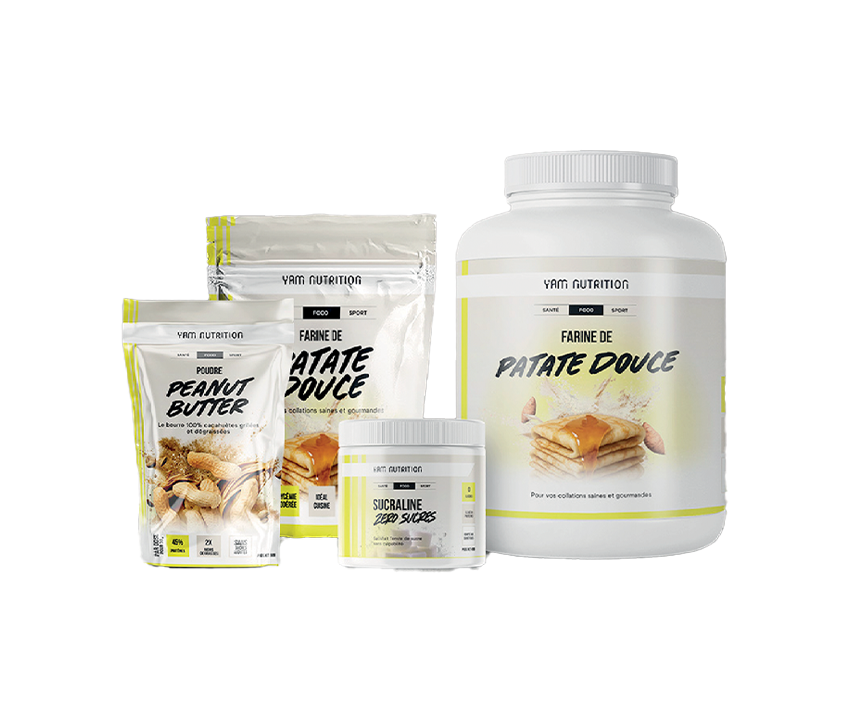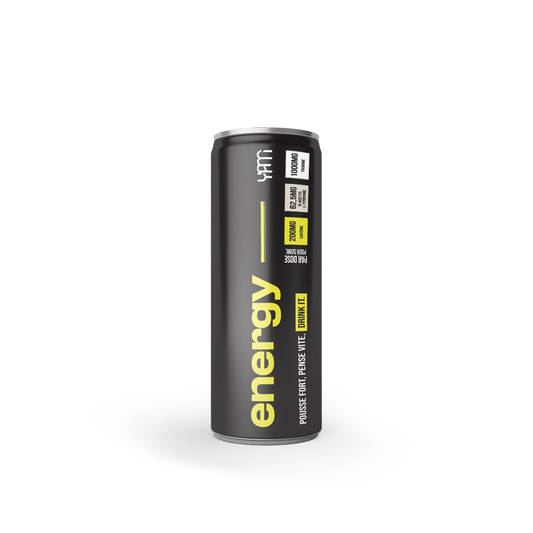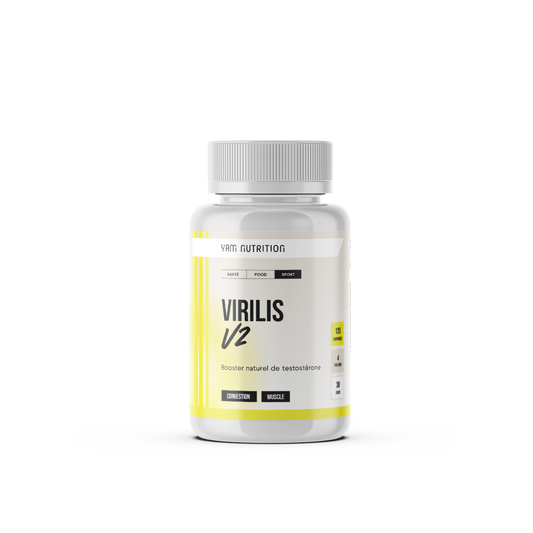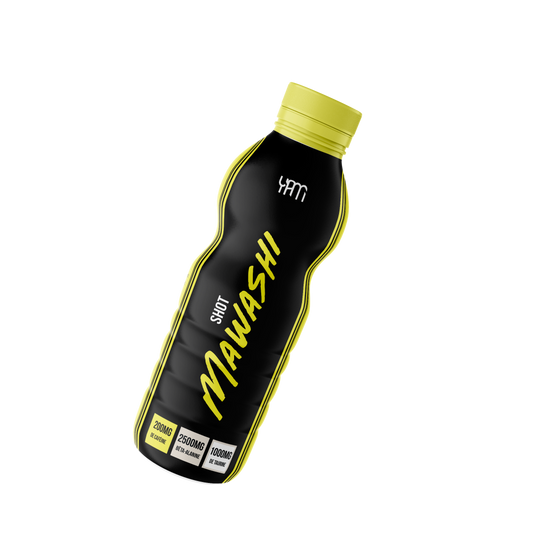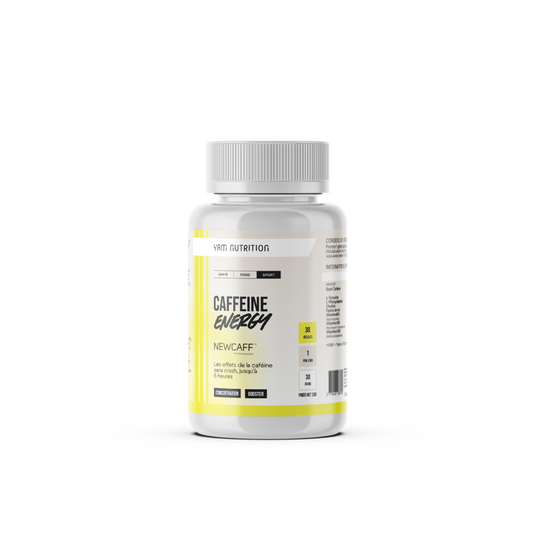What science tells us about taurine

Sommaire
When we talk about amino acids, we often talk about the 22 essential and non-essential amino acids used by the human body at all times. Each of them is recognized by our genetic code, which uses it to order our cells to create proteins. We are talking about Glutamine, Leucine or Arginine, or even Citrulline … We are also very attached to the Glycine for its benefits for joint health and other metabolic functions. However, very little mention is made of Taurine and the clinical studies that have been conducted on this subject. Strictly speaking, Taurine is not really an amino acid but a sulfur derivative of Cysteine or Methionine. To be a true amino acid, a molecule must have a carboxyl acid function (-COOH) and an amino function (-NH2 or -NH3). We also speak of an organic acid with an amine function. Here, this is not quite the case with Taurine.
The energy drink 2.5x more caffeinated than average The natural testosterone booster The ultimate pre-workout booster for a killer boost
YAM Energy Drink
Sale price
From 3,00 €
Virilis V2
29,90 €
Sale price
29,90 €
Bombi Preworkout
Sale price
49,90 €
Taurine has been clearly devalued by the clichés about energy drinks
Most people have heard of taurine through energy drinks, but they don't really know what it is. No one knows that it's a molecule similar to an amino acid. However, people have only retained unfounded clichés. If taurine has a role to play in liver health, it is certainly more likely that caffeine of these drinks is more the cause of the temporary energy boost than attributing it to Taurine. This kind of nonsense contributes to spreading ignorance about this amino derivative while discouraging those who want to know what Taurine is useful for their body. The fact remains that Taurine is one of the direct derivatives of the most essential amino acids in our body. And obviously, Taurine is as useful for sedentary people as it is for athletes. Useful for sedentary people, Taurine is even more useful for athletes, whether you do endurance or strength sports.
The influence of this amino acid on health would be quite remarkable
Present throughout the body, Taurine is linked to cardiovascular health, cellular sensitivity to insulin, electrolyte balance (magnesium, calcium, potassium, sodium), liver protection, hearing and modulation of the immune system. Here, we are far from hypothetical claims since these subjects have all been the subject of in-depth scientific and clinical studies. Indeed, taurine is present in all cells that can be stimulated, such as those of the nervous system and the heart. Its role in human longevity and the health of several organs is seriously studied by scientific research, particularly by Japanese researchers. Indeed, the Japanese are wondering about the role of this (almost amino) acid on longevity, particularly in fish, which also contain high levels of Taurine and Glycine .
Taurine is said to have a remarkable effect against weight gain, obesity and glucose control.
Research has highlighted the fact that taurine could improve the health of a large number of people by limiting the risks of overweight and obesity. With age, inflammation impacts every part of the body, but in men, this mainly results in an increase in abdominal fat. The impact on hormones is also proven because the higher the body fat percentage in men, the higher the testosterone is converted into estrogen by an enzyme, aromatase. This gradual fat gain is harmful to health. Clinical studies based on an intake of 3 grams of taurine per day for 7 weeks* in a group of overweight or obese but non-diabetic people. Researchers observed a significant reduction in blood triglycerides. Most studies conducted for this purpose focus on the ability of taurine to improve glucose tolerance, both alone and in combination with other nutrients.
As for the blood concentration of Taurine, it is generally lower in diabetics than in healthy individuals. Here too, clinical experience has shown that an intake of 1.5 grams of taurine per day for 14 days to counteract the deleterious effects of diabetes in the test subjects**. In addition, studies conducted on diabetic rats show that taurine may help protect heart function and prevent heart muscle damage, partly due to its ability to increase the transport of glucose from the blood to heart muscle cells. Thus, it is not difficult to understand why it is essential in healthy people, that it could help diabetics but that it could also help athletes achieve better performance. Along the same lines, taurine is linked to the metabolism of magnesium which it improves the bioavailability of . In other words, it indirectly intervenes in the release and conservation of muscular energy.
Taurine may be supplemented to boost endurance or strength performance.
We know that glycolysis occurs quickly after the phosphocreatine in the context of strength sports with repeated exercises such as bodybuilding but also endurance. Improving glycolysis, both for skeletal muscles and for the heart, would promote the use of glucose and strength or endurance performances. It also intervenes on energy metabolism by delaying the accumulation of lactates, an essential element in improving sports performances. In addition, Taurine protects muscles from oxidative damage created by free radicals. From this, there is every reason to believe that a small amount of this amino acid is able to improve the power take-off and muscle mass of bodybuilders but also, to stimulate physical endurance. Similarly, it would be quite logical to think that this sulfur amino acid could be associated with the creatine monohydrate to boost your athletic performance. Its links with many metabolic functions may not yet be fully understood by scientific research, but we already know its role in the absorption of minerals, including magnesium and others...
YAM Nutrition
Bibliography elements
*Zhang M, Bi LF, Fang JH, et al. Beneficial effects of taurine on serum lipids in overweight or obese non-diabetic subjects . Amino Acids. 2004 Jun;26(3):267-71.
**Kim KS, Oh da H, Kim JY, et al. Taurine ameliorates hyperglycemia and dyslipidemia by reducing insulin resistance and leptin level in Otsuka Long-Evans Tokushima fatty (OLETF) rats with long-term diabetes . Exp Mol Med. 2012 Nov 30;44(11):665-73.
Eric MALLET
Spécialiste en Nutrition Sportive
